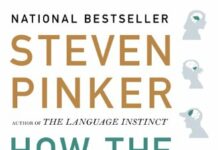
Ebook Info
- Published: 2016
- Number of pages: 106 pages
- Format: PDF
- File Size: 0.74 MB
- Authors: Steven Pinker
Description
Progress. It is one of the animating concepts of the modern era. From the Enlightenment onwards, the West has had an enduring belief that through the evolution of institutions, innovations, and ideas, the human condition is improving. This process is supposedly accelerating as new technologies, individual freedoms, and the spread of global norms empower individuals and societies around the world. But is progress inevitable? Its critics argue that human civilization has become different, not better, over the last two and a half centuries. What is seen as a breakthrough or innovation in one period becomes a setback or limitation in another. In short, progress is an ideology not a fact; a way of thinking about the world as opposed to a description of reality.In the seventeenth semi-annual Munk Debates, which was held in Toronto on November 6, 2015, pioneering cognitive scientist Steven Pinker and bestselling author Matt Ridley squared off against noted philosopher Alain de Botton and bestselling author Malcolm Gladwell to debate whether humankind’s best days lie ahead.
User’s Reviews
Reviews from Amazon users which were colected at the time this book was published on the website:
⭐As in all debating there is little attempt tp build on one another’s arguments, and much accusing the opposite party of saying things they never did… That said, it is a useful contrast of opinions that highlights all the major points one would need to consider
⭐This book is OK, but Pinker’s latest book ENLIGHTENMENT NOW, is far better.
⭐A fantastic short, well-moderated discussion around optimism.Would have liked to have Vaclav Smil on the Gladwell side instead of De Botton, who came off a little tangential and not as compelling as the rest.
⭐I admire the authors in this debate, but it was rather disappointing to read. Not enough depth or information, and it did not go long enough. I expected a more invigorating “book,” but it is a sort script of a not great conversation.
⭐Awesome debate, though the pessimist side seemed less well prepared. Highly recommend listening to authors podcasts as well, they envision their arguments in a better way
⭐Be it resolved: Do humankind’s best days lie ahead?Featuring four of the most influential and well recognised thinkers of our days, the debate, held on 5 November 2015, addressed that fundamental question. On the one side of the argument, Pinker and Ridley declare optimism that can be well summarised in the following statement: with all that past evidence that human living standards improve, it seems indefensible to expect that the best days are past us.On the other side, De Botton and Gladwell rehearse a more pessimistic view and purport that scientific and technological progress can seldom account for a pure indication of happiness. Optimists, that their opponents sarcastically call “Pollyannas”, propose ten factors (lifespan, health,prosperity, peace safety, freedom, knowledge, human rights, gender equality, intelligence) that have been radically though gradually improving, albeit not always ceremoniously, due to our tendency to pay attention and make news from negative developments. Pessimists, laterally nicknamed “Cassandras” contend that medicine and science tend to present an over-sanguine view of the world, that is often politically charged, while the less optimistic view of the psyche and the humanities approach goes largely unnoticed, and make the point that unhappiness cannot be eradicated through the material improvements referred to in Pinker and Ridley’s argument. They further draw on the aggravation of existential risk and maintain that the significant achievements of science in our times have introduced new hazards and that we as a species have only managed to reshuffle and redistribute risks, as opposed to eliminating them or reducing their effect for that matter.
⭐Three of my favorite authors in one book. What could go wrong? As it turns out, the arguments are a little mundane and simple to say the least Usually. I would buy their books all day long, however, this one……. perhaps stick to utube for the talk.
⭐Quite an interesting, informative and easy read, but – perhaps necessarily – inconclusive. There is abundant evidence that human living conditions have improved over the centuries, but this doesn’t mean they must continue to do so. Species have often flourished and then become extinct.
⭐Be aware that it’s a tiny little book. If it was normal size it would be about 30 pages.
⭐Lots of interesting and telling points, though I was left with sense of it being, perhaps inevitably, inconclusive. Some areas which one might have expected to be raised, such as mental health and the potentially adverse effects of AI were strangely absent.
⭐Pinker on point again. The book is easily readable in an hour or two.
Keywords
Free Download Do Humankind’s Best Days Lie Ahead?: The Munk Debates in PDF format
Do Humankind’s Best Days Lie Ahead?: The Munk Debates PDF Free Download
Download Do Humankind’s Best Days Lie Ahead?: The Munk Debates 2016 PDF Free
Do Humankind’s Best Days Lie Ahead?: The Munk Debates 2016 PDF Free Download
Download Do Humankind’s Best Days Lie Ahead?: The Munk Debates PDF
Free Download Ebook Do Humankind’s Best Days Lie Ahead?: The Munk Debates


